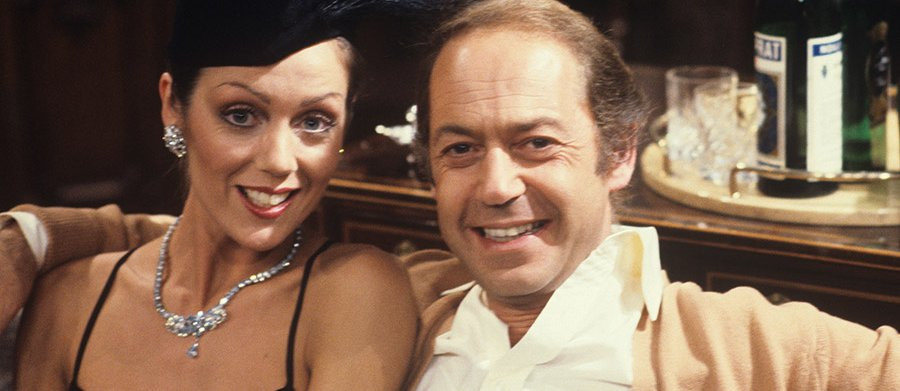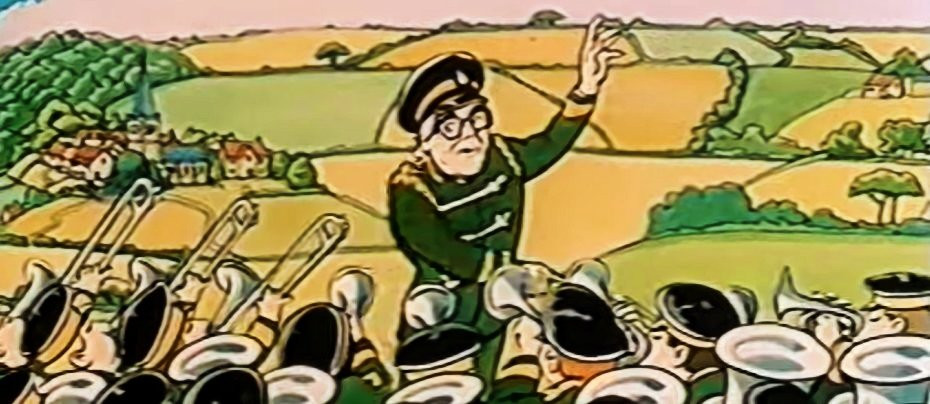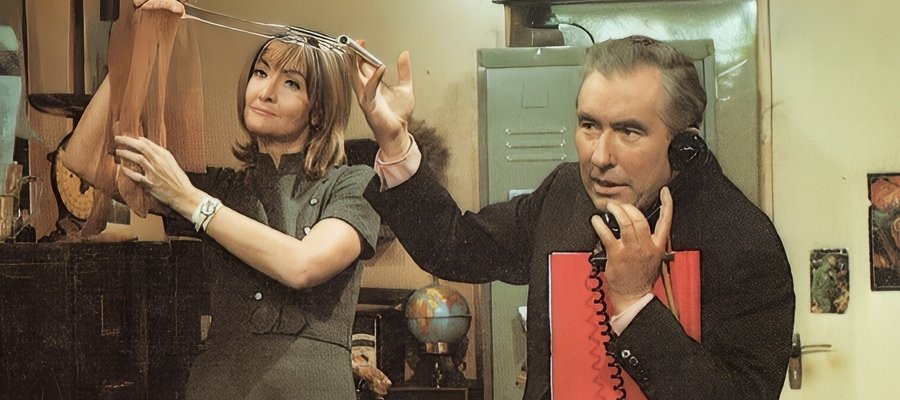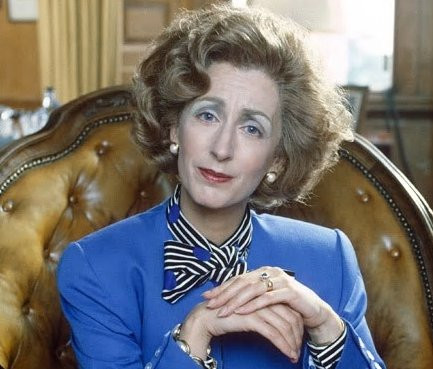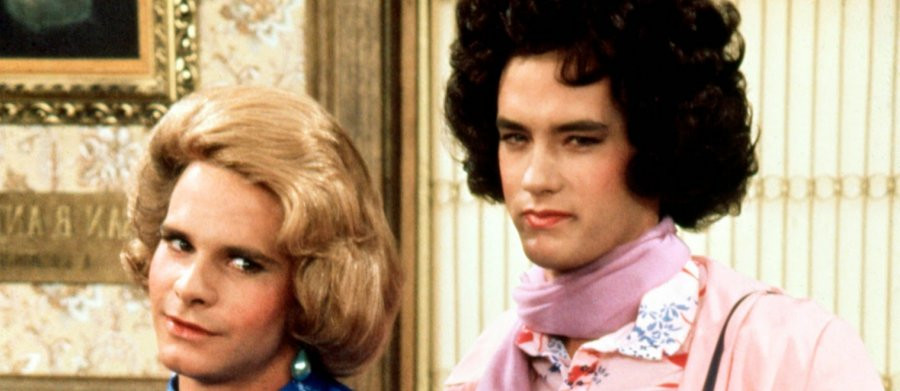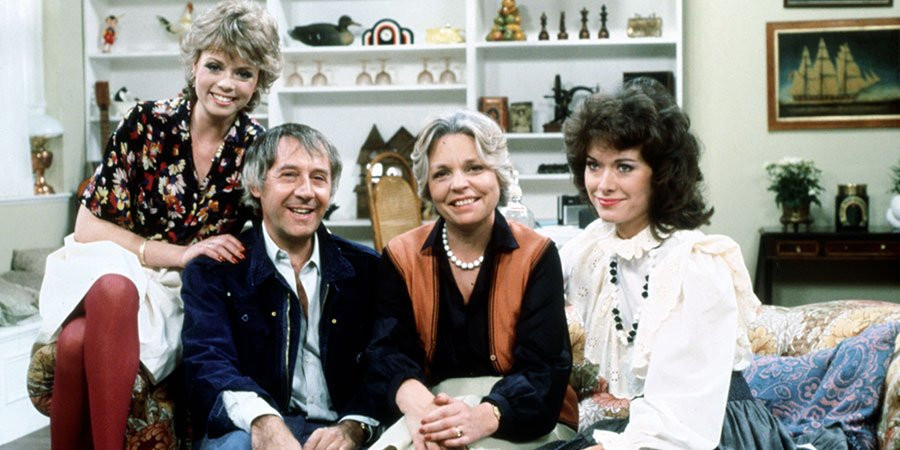
Keep it in the Family
1980 - United KingdomReview: Brian Slade
After creating some of the biggest sitcom hits on commercial television in the 1970s with long-time writing partner Johnnie Mortimer, Brian Cooke welcomed in the 1980s with solo writing success via the delightful family sitcom Keep it in the Family.
Dudley Rush is a cartoonist, but not one that is particularly thrilled about his career. At 45 years old he spends his time drawing, or putting off drawing, a newspaper strip called Barney the Bionic Bulldog. His artist’s studio is actually just a drawing board in the living room of his Highgate flat that he shares with wife Muriel and two daughters, Jacqui and Susan.
The part of Dudley is played by Robert Gillespie. Gillespie had a vast back catalogue of playing smaller parts in some of the 1970’s most well-known television hits such as The Liver Birds, It Ain’t Half Hot Mum, Robin’s Nest, George and Mildred and Butterflies, some of which had been penned by Cooke and Mortimer. Dudley Rush, however, was written by Cooke specifically for Gillespie, and his dry eccentricities make it easy to see why Cooke was so keen on giving Gillespie a starring vehicle of his own.
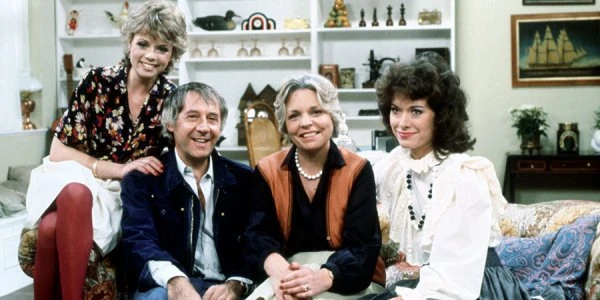
Dudley’s world is dominated by two things – his work and the women in his life. Unusually for a sitcom with its roots based in an era untouched as yet by political correctness or advances in women’s role in society, it is the females that hold all the cards and carry all the power. Muriel, played with a quiet authority by Pauline Yates, may technically be a housewife, but she most definitely isn’t the standard little woman behind a successful man that comedies of the time most often went with. While Dudley procrastinates with his cartooning, Muriel is the one who takes control of the situation and ensures he delivers his work on time. It is she who organises the household chores that Dudley cannot perform successfully (‘you suffer from delusions of competence’ she bemoans of his DIY talents), and by and large it is she who keeps the daughters in line…just not always the same overly protective line that Dudley would prefer.
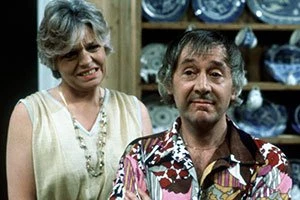
At the start of the series, Jacqui and Susan are 21 and 17 years old respectively. In the opening episode, as the ground floor flat the family have been renting out becomes vacant, the girls manipulate Dudley into allowing them to move in, keeping him at arm’s length when they are entertaining, but having him close enough at hand for any paternal advice.
Dudley himself is an eccentric. His cartoon strip doesn’t satisfy him enough, reflecting that ‘there are times when I feel like a crumb at the bottom of the biscuit tin of life.’ He often allows his mind to drift off into flights of fantasy. As the programme progresses, Dudley’s drifting into make believe scenarios moves from him explaining the escapist fantasies to borderline dream sequences. Dudley will think about almost anything rather than his work, and it is this yearning for distraction that leads him into the attic in the first episode where he finds a lion glove puppet from his daughters’ youth.
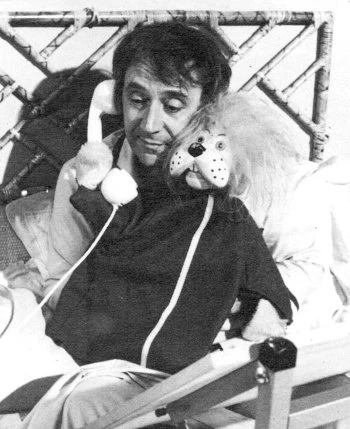
From here on in, Dudley wears the puppet while working. His avoidance of work leads to constant angry phone calls from his boss, Duncan. Glyn Houston plays his part to perfection, in part furious at the constant need to badger Dudley in order to get his work. But the necessary chasing of Dudley isn’t without its perks. When not fuming at Dudley’s delays, Duncan is putting on the charm for Muriel, something Dudley is well aware of. ‘You only come here to swill tea, gobble cake and chat up Muriel,’ he observes.
It is for this reason, along with his inability to meet his deadlines, that Dudley regularly pranks his boss. Deliberately leaving distorted messages on Duncan’s answering machine in order to deflect attention from his work delays, Dudley leaves his boss in multiple uncomfortable situations but always manages to save his job at the very last minute.
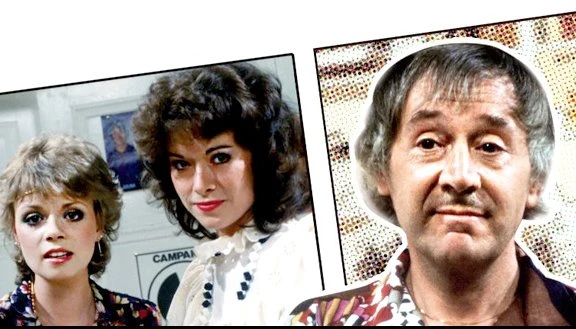
The three leading ladies in the show are all substantial enough characters to avoid some of the more uncomfortable comparisons of values across the decades. It’s for that reason that it was somewhat of a shame that the fifth and final series did not include Muriel. The daughters remain strong characters, but Dudley becomes rather more helpless as his wife visits her mother in Australia. The final series sees the daughters and Duncan working on finding a housekeeper to keep Dudley functional, without success. Duncan eventually moves in as the girls struggle to keep Dudley going as a functioning human being and Muriel’s absence becomes ever more unpalatable for him. As such, the focus of the programme is as much on the daughters in the final series as it is about Dudley, meaning that his career falls to the back of the subject matter and domestic arrangements tend to be the primary plotline.
Keep it in the Family is unusual for comedies of its age. Ordinarily, such comedies expect the male lead to demand support from the women in his life. Here, Dudley is simply inept – at pretty much everything. The strength of the women keeps the laughs coming, and although it lost its way in the final series of just five episodes, Gillespie’s eccentricities make Keep it in the Family a very entertaining piece of nostalgia.
Brian Slade
Born and raised in Dorset, Brian turned his back on a twenty-five-year career in IT in order to satisfy his writing passions. After success with magazine articles and smaller biographical pieces, he published his first full-length work, `Simon Cadell: The Authorised Biography'.
Brian is a devoted fan of the comedy stars of yesteryear, citing Eric Morecambe, Ken Dodd, Harpo Marx and Dudley Moore amongst his personal favourites. He was drawn to the story of Simon Cadell through not only `Hi-de-hi!' but also `Life Without George', a programme he identified with having grown up in the Thatcher era.
Seen this show? How do you rate it?
Seen this show? How do you rate it?
Published on May 8th, 2020. Written by Brian Slade for Television Heaven.


